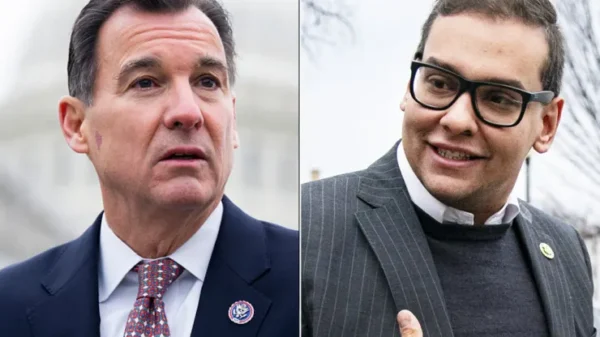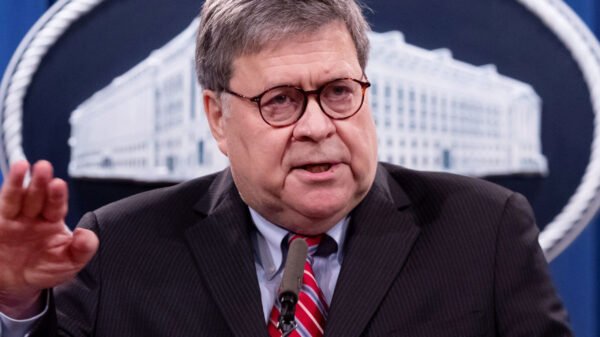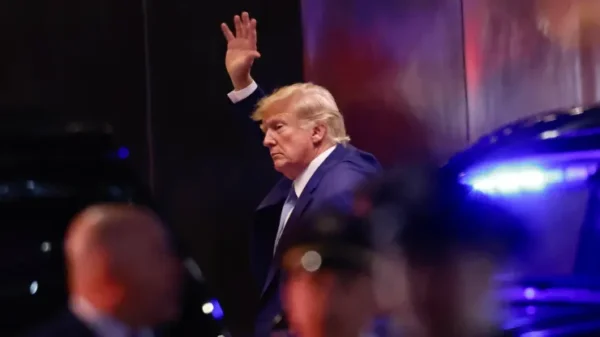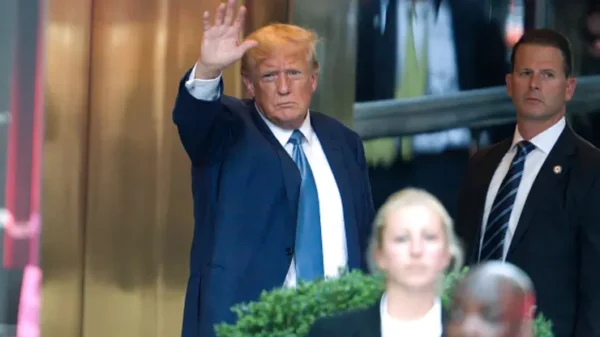The diplomatic uproar across the Muslim world is growing, after a spokeswoman for India’s ruling party made derogatory remarks insulting the Prophet Muhammad.
SACHA PFEIFFER, HOST:
India is facing a chorus of criticism from the Muslim world this week. That’s after a spokeswoman for India’s ruling party made derogatory comments about the Prophet Mohammed. India is ruled by Hindu nationalists, and hate speech there against minority Muslims has been on the rise. Now there’s an international backlash. NPR’s Lauren Frayer reports from Mumbai.
LAUREN FRAYER, BYLINE: As a spokeswoman for India’s ruling party, Nupur Sharma was notorious for shouting matches on TV…
(SOUNDBITE OF ARCHIVED RECORDING)
NUPUR SHARMA: Absolutely senile old man.
UNIDENTIFIED PERSON: When you ask me a question…
SHARMA: Absolutely senile old man.
UNIDENTIFIED PERSON: …It is courtesy to let me answer.
FRAYER: …In which she insults fellow panelists. Last month, when she insulted the Prophet Muhammad on TV, Indian Muslims protested in the streets.
(SOUNDBITE OF ARCHIVED RECORDING)
UNIDENTIFIED PROTESTERS: (Non-English language spoken).
FRAYER: But their voices were ignored, and some of them were even beaten by police. It was only when Gulf countries – the UAE, Bahrain, Saudi Arabia and many others – lodged official complaints that Prime Minister Narendra Modi took action.
(SOUNDBITE OF ARCHIVED RECORDING)
UNIDENTIFIED REPORTER: Big news coming in…
FRAYER: His Bharatiya Janata Party suspended its spokeswoman and expelled another official. Now, the Gulf is home to 8 million Indian migrant workers, and India relies on those countries for oil and gas imports. Hasan Alhasan is a foreign policy expert in Bahrain.
HASAN ALHASAN: So there definitely is a lot of outrage very visible on social media, but it’s also real in conversations with real people.
FRAYER: Even though Modi’s Hindu nationalists have long been accused of Islamophobia, Alhasan says…
ALHASAN: Insulting the Prophet Muhammad sort of takes it to a whole new level, and it becomes a transnational or international issue.
FRAYER: One that could imperil Modi’s foreign policy. Yamini Aiyar is a political scientist in Delhi. She’s watched the rise of Modi’s Hindu nationalists and with it, abuse of India’s minorities. Even after this backlash, some Indians still admire the former spokeswoman and see her as gutsy.
YAMINI AIYAR: Uncivility is not frowned upon. It’s indeed encouraged. It’s part of the process of laying the firm foundations of the majoritarian politics. And the BJP thought they could get away with it.
FRAYER: But Aiyar says satellite TV and social media have made it impossible for any government to have one message for domestic consumption and another internationally. So what happens inside India now no longer stays here.
Lauren Frayer, NPR News, Mumbai.
Copyright © 2022 NPR. All rights reserved. Visit our website terms of use and permissions pages at www.npr.org for further information.
NPR transcripts are created on a rush deadline by an NPR contractor. This text may not be in its final form and may be updated or revised in the future. Accuracy and availability may vary. The authoritative record of NPR’s programming is the audio record.Sponsor Message
Become an NPR sponsor















































